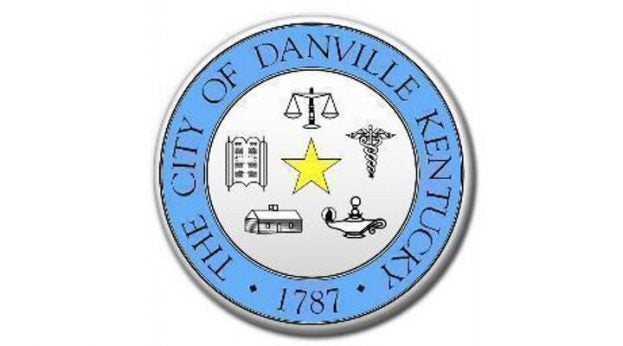Danville city workers to get service time pay incentives; increases will cost $186K annually
Published 3:25 pm Friday, November 13, 2020
The Danville city commission unanimously approved a municipal order to apply a longevity incentive to all non-hazardous duty employees during a special called workshop on Nov. 9 to discuss compensation and longevity pay for city employees. This longevity incentive will have about a $186,000 annual cost to the city, including retirement costs, which Randy Boyd, human resources manager for the city, said the city reviewed and can afford. Hazardous duty employees already have this incentive in place.
Boyd said the incentive is separate from an employee’s base salary, and when an employee reaches their three- and five-year anniversaries working for the city, they will be eligible for incentives starting with the payroll period that includes their anniversary date. After three years of service, employees will receive a $1,500 incentive, and they will receive a $1,000 incentive after five years. The incentive will be paid out in equal portions over the city’s 26 pay periods each year, he said. The incentive will only be given to employees on years three and five, as one-time incentives, and existing employees who have already reached these milestones will have the incentives added now and will still be paid proportionally over the city’s payroll cycle.
Since hazardous duty employees already had this incentive, Boyd said this new measure is meant to improve equity between employees, retention and recruitment.
“The longevity will have a positive impact on employee retention by providing employees with an incentive for their continued dedication and commitment to the city,” Boyd said in an email. “It will also serve as an additional recruiting tool to attract and retain experienced professionals to the city.”
Earl Coffey, city manager, said one way the incentive would improve retention is by aiming to help retain employees in knowledge-based roles, such as waste water system operators as an example.
Boyd said no further action is needed by the commission to put this new policy in place. He said because the longevity incentive is a policy change, the city’s handbook on policies and procedures, which is in the process of being updated with changes, will be revised to include the change as part of the city’s overall compensation policy. The longevity pay will be implemented for the non-hazardous duty employees eligible for the incentives, he said, and will become effective for the current city payroll period, which ends Nov. 18.
The longevity incentive is a separate effort by the city from the compensation study, but compensation for employees is also under review and is expected to be revised. The compensation study focuses on market data as it relates to base salary data for each job classification, Boyd said, while the longevity incentive is distinct from base pay for employees.
As previously reported by the Advocate-Messenger, a pay rate scale compensation adjustment analysis Boyd submitted during the Oct. 26 city commission meeting found that 86 city employees’ salaries are below their equivalent pay rate scale. This can create an issue with retention and recruiting if salaries are not market-competitive. As previously reported by the Advocate-Messenger, “The projected annual cost to make the salary adjustments in the analysis is $449,138.14 and includes the largest increases to police and fire departments.” The commission did not take action to revise the city compensation plan during the Nov. 9 meeting because they decided they wanted to review the matter further, but during the meeting they planned another workshop where compensation will be further discussed and possible action will be taken at a special called meeting on Nov. 16 at 1 p.m.
Highlights from special called commission meeting that followed the workshop Nov. 9 include:
• Commissioner Denise Terry referred back to a recommendation she made in September, which the Advocate-Messenger has previously reported on, to dissolve the partnership between the city and the Danville-Boyle County Economic Development Partnership or she would retire as representative for the city within the EDP board. After her recommendation, some EDP board members suggested she retire right away rather than waiting, after which a different representative for the city would be chosen to be on the board.
Terry said because of what she alleged as a dismissive attitude from some EDP board members toward her input since her recommendation, she believes the best choice for the community would be for her to resign as the city commission representative on the EDP board. She said this resignation would not change her position that the city should redirect efforts away from the EDP and toward a different economic development model. Mayor Mike Perros said he would like to see her stay on the board, and City Attorney Stephen Dexter said she could stay passively on the board until the city chooses a different representative on the board should she choose. Terry said she did not want to do that. It was decided during the meeting that until the commission has a workshop to discuss potential changes to the economic development model for the city, Terry’s vacancy on the EDP board as city representative would exist until a new representative were chosen or a different economic development model were chosen.
• A retirement recognition was held for Detective Major Kevin Peel, who Police Chief Tony Gray described as one of the best detectives in Kentucky. Gray said when he first became police chief in 2012, there was a triple shooting, double homicide, and Peel led the charge to handle the case. A couple of other homicides happened in the months that followed, and Gray said it all happened to occur in his first six months as police chief. Gray said he has admired Peel’s leadership and example in his time as a detective and in his handling of such cases.






